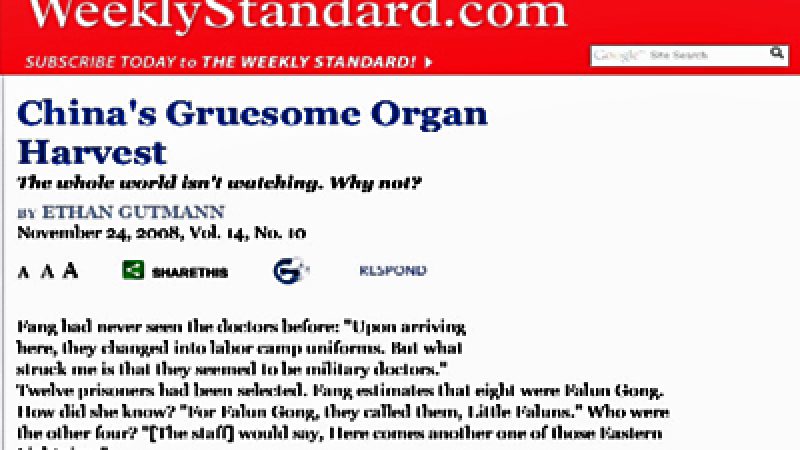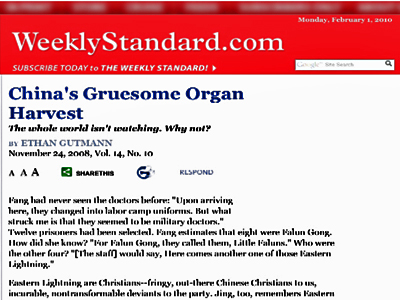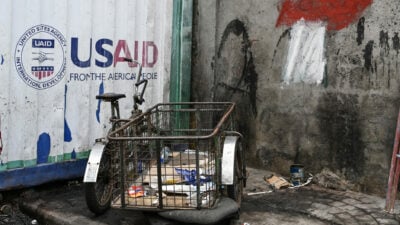
Switzerland: Roche Gets “Shame” Awards in Davos for Transplant Drug Trials in China

One of the world’s largest pharmaceutical companies, Roche, won two “shame” prizes at the Public Eye Awards in Davos, Switzerland. No representative for Roche showed up to pick up the prizes.
The annual Public Eye Awards is run by non-governmental organizations that promote corporate social responsibility.
Roche won the 2010 Swiss Award, and the People’s Award—by public vote online— for carrying out research on transplant recipients in China and supporting unethical transplant practices.
The organizers say the so-called organ “donors” are probably executed prisoners.
Arne Schwarz carried out the research on Roche’s activities in China.
[Arne Schwarz, Researcher]:
“More than 90% of all transplanted organs in China come from executed prisoners, which even the Chinese Vice Health Minister Huang Jiefu admitted in October 2008.”
The World Medical Association, among others, unanimously opposes the use of organs for transplants from prisoners because “individuals in custody are not in a position to give consent freely.”
[Arne Schwarz, Researcher]:
“Roche is carrying out two medical studies right now in China with transplanted organs, without being able to tell the origin of the organs.”
Roche has been testing their anti-rejection drug “Cell Cept” on about 300 kidney and transplant recipients in many Chinese clinics. The firm has also been marketing and producing the drug in China for several years.
The Public Eye Awards’ statement points out concerns about the source of the organs coming from prisoners of conscience, including Falun Gong practitioners, who’ve been persecuted for over 10 years by the communist regime.
An investigative journalist specializing in China and human rights, Ethan Gutmann, carried out an independent investigation—published in The Weekly Standard. He points out in addition to Falun Gong, most likely Christians have also been killed for their organs in China.
 NTDTV
NTDTV



























vielen Dank, dass Sie unseren Kommentar-Bereich nutzen.
Bitte verzichten Sie auf Unterstellungen, Schimpfworte, aggressive Formulierungen und Werbe-Links. Solche Kommentare werden wir nicht veröffentlichen. Dies umfasst ebenso abschweifende Kommentare, die keinen konkreten Bezug zum jeweiligen Artikel haben. Viele Kommentare waren bisher schon anregend und auf die Themen bezogen. Wir bitten Sie um eine Qualität, die den Artikeln entspricht, so haben wir alle etwas davon.
Da wir die Verantwortung für jeden veröffentlichten Kommentar tragen, geben wir Kommentare erst nach einer Prüfung frei. Je nach Aufkommen kann es deswegen zu zeitlichen Verzögerungen kommen.
Ihre Epoch Times - Redaktion